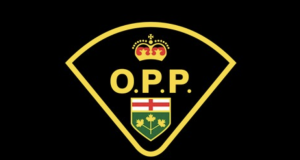The Government of Canada’s top priority remains to keep people and communities safe, and to protect jobs, trade, and our economy. The federal government is working with provinces and municipalities to get the current situation under control and end the ongoing illegal blockades and occupations taking place across the country.
Today, the Honourable David Lametti, Minister of Justice and Attorney General of Canada, with the support of the Honourable Marco Mendicino, Minister of Public Safety, and the Honourable Bill Blair, President of the Queen’s Privy Council in Canada, and Minister of Emergency Preparedness, announced the declaration of a public order emergency under the Emergencies Act, to end disruptions, border blockades and the occupation of Ottawa’s downtown core.
The public order emergency grants the Government the authority to apply the following temporary measures:
- Regulating and prohibiting public assemblies, including blockades, other than lawful advocacy, protest, or dissent
- Regulating the use of specified property, including goods to be used with respect to a blockade
- Designating and securing places where blockades are to be prohibited (e.g. borders, approaches to borders, other critical infrastructure)
- Directing specified persons to render essential services to relieve impacts of blockades on Canada’s economy
- Authorizing or directing specified financial institutions to render essential services to relieve the impact of blockades, including by regulating and prohibiting the use of property to fund or support the blockades
- Measures with respect to authorizing the Royal Canadian Mounted Police to enforce municipal and provincial laws by means of incorporation by reference
- The imposition of fines or imprisonment for contravening on any of the measures declared under this public order emergency
In order to declare a public order emergency, the Emergencies Act requires that there be an emergency that arises from threats to the security of Canada that are so serious as to be a national emergency. Threats to the security of Canada may include the threat or use of acts of serious violence against persons or property for the purpose of achieving a political or ideological objective. A national emergency is an urgent, temporary, and critical situation that seriously endangers the health and safety of Canadians that cannot be effectively dealt with by the provinces or territories, or that seriously threatens the ability of the Government of Canada to preserve the sovereignty, security and territorial integrity of Canada. It must be a situation that cannot be effectively dealt with by any other law of Canada.
When a declaration of a public order emergency is made under the Emergencies Act, it allows the federal government to make orders and regulations that it believes are necessary for dealing with the emergency, on reasonable and proportional grounds.
The Emergencies Act has stringent, built-in protections which ensure democratic oversight of the use of these powers. Any declaration under the Emergencies Act must be laid before both the House of Commons and the Senate within timelines set out in the Act for confirmation. Any steps taken by the Government under the Emergencies Act must be consistent with the Canadian Charter of Rights and Freedoms, and must be reasonable and proportional to the risks to the public health and safety of Canadians.
Anyone participating in the blockades is urged to return to their communities peacefully and immediately. The Government’s top priority remains to keep people and communities safe, and to protect jobs, trade, and our economy. These blockades must be brought to an end, and the federal government will continue working on every option to end them.
- Tenaris Commits an additional $78,500 to Support HSCDSB STEAM Lab Programming - February 21, 2026
- Safety Reminder: Keep Children Off Snowbanks Near Power Lines - February 21, 2026
- Une élève de Wawa exerce son leadership au Sénat des élèves du CSC Nouvelon - February 20, 2026
 Wawa-news.com Local and Regional News
Wawa-news.com Local and Regional News

